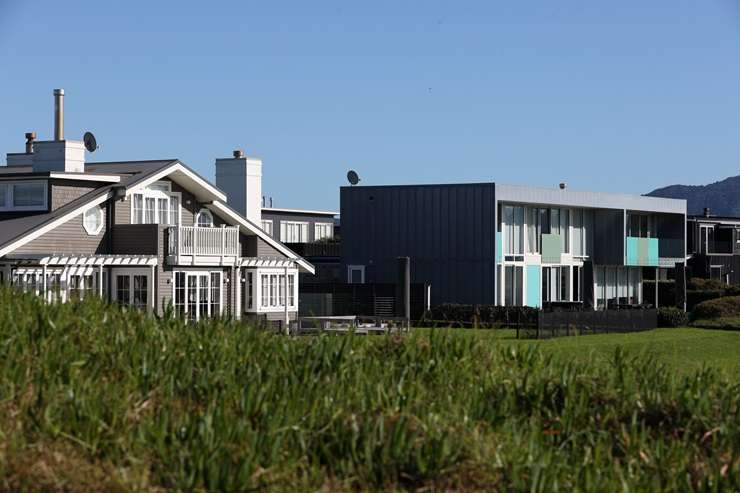- Auckland Council's new property valuations may not reflect current house prices due to delays.
- Auckland's average property value fell year-on-year 0.2% to $1.299 million, with mixed changes across suburbs.
- Point Wells saw the biggest rise since last year's valuation date, while Newmarket experienced the largest drop.
ANALYSIS: Auckland Council is due to release its new property valuations this month, possibly next week, but the new CVs might not be the boost many homeowners are expecting.
Start your property search
The valuations were taken a year ago, but delays in sign-off mean they could well be past their use-by date as guides to house prices in the city.
The last CVs were taken in 2021, when the market was rising fast and interest rates were below 3%. However, the housing landscape changed significantly for the worse in the years since.
Between June 2021 and last year's valuation date, Auckland's average property value fell 4%. It remains to be seen if the new CVs follow this trend. A more pressing and universal question for sellers, given the 12-month delay, is this: Will my home sell for more than CV or less?
Most agents and industry commentators are gently dismissive of CVs as guides to house prices and will tell buyers and sellers that the number is there to help councils calculate what share of rates homeowners should pay. It’s not a reliable guide to what a house is worth if it were sold today, or what the bank would rely on for lending money.
However, despite these warnings, CVs have become a proxy for guessing sale prices.
Given that, OneRoof and its data partner, Valocity, decided to work out what changes Aucklanders can expect, and identify the suburbs where property values have risen in the year since the CVs were taken, and the suburbs where homeowners are at risk.
Discover more:
- Tony Alexander: Dream scenario for thousands of young buyers as investors sell, sell, sell
- Ex-Warehouse chief sells his Auckland villa to overseas buyer for more than $8m
- 'Significant amount' of buyer interest in disgraced rich-lister's mansion
The results are a rough guide to market changes and should only be used as a starting point for further investigation and initiating conversations with selling agents and valuation experts.
Between May last year and now, Auckland's average property value fell 1.1% ($15,000) to $1.299 million. Of the city's former council districts, only North Shore and Rodney are up year-on-year, but the lifts are marginal.
Of the 206 Auckland suburbs covered in the analysis, 94 have risen in value since the new CVs were assessed, and 110 have fallen in value. The biggest rises were in the northernmost suburbs of Auckland’s Rodney district, while some of the biggest falls were in Auckland's apartment-heavy central suburbs.
Point Wells’ average property value jumped the most, rising 7.9% year-on-year. The next biggest rises were in Omaha (7.4%); Huapai (6.9%); Pinehill (5.7%); and Stanley Point (5.5%).
The leaps in value could see some homeowners beat their likely new CV by tens of thousands of dollars if they went to market now, with the research identifying four suburbs, including two of the country's wealthiest beach spots, where the dollar difference between May last year and now is $100,000 or more: Omaha (+$199,000); Point Wells (+$179,000); Stanley Point (+$133,000); and Pinehill (+$100,000).
The research found the biggest value drops over the last 12 months were in Newmarket (-8.8%); Whitford (-8.4%); Auckland Central (-7.3%); Ramarama (-6%); and Totara Park (-6%).

Omaha homeowners have a good chance of beating their new CV, and possibly their old one, if they sold today. Photo / Fiona Goodall
These could be high-risk suburbs, where homeowners could end up selling for much less than their new CV. In the case of Whitford, the dollar drop is eye-watering $304,000.
However, these numbers should be taken with a pinch of salt. Some of the bigger value drops are the result of changes in housing stock, with the building of cheaper townhouses in former lifestyle block suburbs bringing the overall property value down.
- Click here to find properties for sale in Auckland










































































